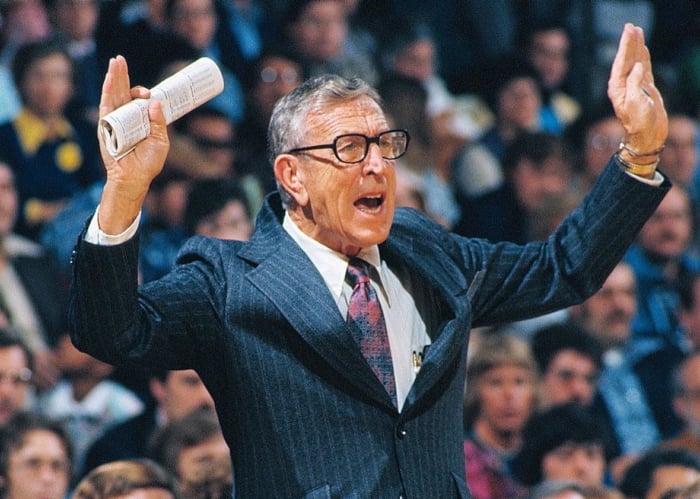John Wooden (1910 – 2010), guided UCLA (University of California Los Angeles) Bruins to ten NCAA Basketball championships over a 12-year period, including four perfect seasons and an 88-game winning streak. He was named ESPN’s Greatest Coach of the Twentieth Century and voted #1 Coach of All Time by The Sporting News. Sports Illustrated said it best when they said: There’s been never a finer man in American Sports than John Wooden, or finer coach. John Wooden was awarded the nation’s highest civilian honor, The Presidential Medal of Freedom in 2003.
John Wooden shared his success philosophy and leadership principles in a highly inspiring book, which he co-authored with Steve Jamison:Coach Wooden’s Game Plan for Success:
12 Lessons for Extraordinary Performance and Personal Excellence
- Good Values Attract Good People. Treat All People With Dignity and Respect. Good values are like magnet. So are bad values. Make your values visible; What you do is who you are. Who you are is what the organization becomes. People actually do follow the leader.
- Use the Most Powerful Four-letter Word. Love. Love is more important thanlike. Love does not mean that you tolerate bad behavior. Be more concerned with what you can do for others than what others can do for you.
- Call Yourself a Teacher. Each member of your team has the potential for personal greatness; A leader’s job is to teach others how to achieve it. The greatest teaching tool is your own example. Your deeds count more than your words. A great leader is a teacher, who is a lifelong student.
- Emotion is Your Enemy. If you let your emotions takeover, you will be outplayed. Intensity makes you stronger. Emotionalism makes you weaker and vulnerable. Emotional peaks lead to emotional valleys. Consistency in high performance is the mark of a champion.
- It Takes 10 Hands to Score a Basket. Have one team, not starters and substitutes. No one feels good being a substitute. The best talent doesn’t always make the best team. Teamwork means sharing – the ball, the information, contacts, ideas. An organization that lacks selflessness among its members is like a race car with a powerful engine and flat tire. Everybody assists everybody in a team.
- Little Things Make Big Things Happen. There are no big things; only an accumulation of little things that must be done well.
- Make Each Day Your Masterpiece. It’s what you learn after you know it all that counts. Use time wisely, not wastefully. Time is invisible. Its effects are not. Don’t mistake activity for achievement. You have nothing without time. Treat it with great respect. Personal punctuality is a good way to teach respect for time.
- The Carrot is Mightier Than the Stick. Punishment invokes fear. What you need is a team whose members are filled with pride, not fear. The most effective carrot is often a respected leader’s praise. Don’t give praise if you don’t mean it. The purpose of criticism is to correct, improve, and change. It is difficult to affect positive change when you antagonize.
- Make Greatness Available to Everyone. A leader’s greatness is found in bringing out greatness in others. Personal greatness is measured – like success – against one’s own potential, not that of someone else.
- Seek Significant Change. Never be content with performance results. Remove all excuses for getting to the next level. Don’t say ‘No’; ask ‘How?’
- Don’t Look at the Scoreboard. Watching the scoreboard is habit-forming. Break the habit. Define your dreams, hopes, and aspirations. Then file them away. Focus on running the race than winning it.
- Adversity is Your Asset. Things turnout best for those who make the best of the way things turnout. Adversity makes us stronger, but only if we resist the temptation to blame fate for our troubles.
These leadership lessons are universally applicable whether you are a coach, manager or CEO. You can objectively rate yourself on a five-point scale against each of these twelve principles of leadership to take stock of your current level, analyze the gap and do what it takes to bridge that and become a highly effective leader.















